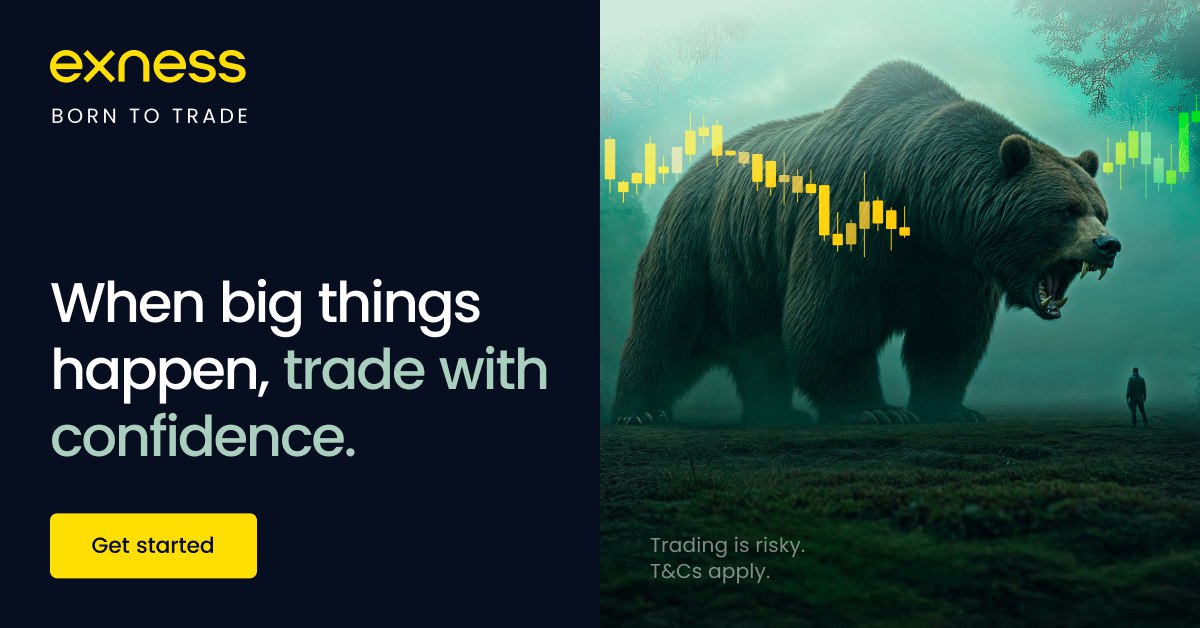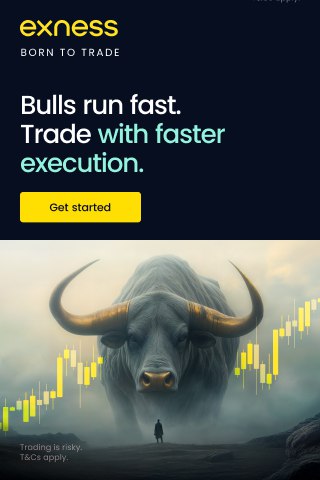
4 minute read
What is Spread in Exness? A Beginner’s Guide to Forex Trading Costs
If you're new to forex trading, one of the first terms you'll encounter is spread. In simple terms, spread is the difference between the buy (ask) and sell (bid) price of a currency pair or asset. In Exness, as in most forex brokers, the spread plays a critical role in determining your trading cost.
In this guide, we’ll explain what spread is in Exness, how it affects your profits, the types of spreads available, and what you should watch out for.
👉 Open your Exness account and check live spreads in real time

1. What Is Spread in Forex Trading?
Spread is the markup or cost charged by a broker to execute a trade. It’s calculated as:
Spread = Ask Price – Bid Price
The bid price is what you’ll get if you sell the asset.
The ask price is what you’ll pay if you buy the asset.
The spread is measured in pips (percentage in point), the smallest movement in a currency pair.
2. How Does Spread Work in Exness?
When you place a trade on Exness, you're essentially starting at a slight loss equal to the spread. For example:
If EUR/USD has a bid price of 1.1050 and an ask price of 1.1052
The spread is 2 pips
That means the market needs to move in your favor by 2 pips before your trade becomes profitable.
👉 Join Exness now and start trading with competitive spreads

3. Types of Spreads in Exness
Exness offers different spread types depending on your account type:
a. Fixed Spreads
Spread remains the same regardless of market conditions
Found in Standard Cent accounts
Best for beginners who want predictable costs
b. Floating (Variable) Spreads
Spread changes based on market volatility and liquidity
Found in Standard, Pro, Raw Spread, and Zero accounts
Often tighter during high liquidity times (e.g., London or New York sessions)
c. Raw Spreads
Available in the Raw Spread Account
Near-zero spreads but with a small fixed commission per trade
Ideal for scalpers and high-volume traders
4. Why Spreads Matter to Traders
a. Impacts Your Profitability
Wider spreads mean higher costs. If the spread is too wide, small trades may never become profitable.
b. Affects Scalping and Intraday Strategies
Scalpers who make multiple trades a day prefer tighter spreads to keep costs low.
c. Influences Trade Timing
During volatile events, spreads widen—so entering or exiting during news releases may cost more.
5. When Do Spreads Change in Exness?
Spreads can widen or tighten based on:
Market sessions: Tighter spreads during London/New York overlaps
Volatility: During news announcements, spreads often increase
Liquidity: Lower liquidity = higher spread (e.g., during Asian session)
💡 Tip: Monitor spreads in the Exness Terminal or MetaTrader to avoid entering at high-cost times.
EXNESS Standard cent account review
6. Exness Accounts and Their Spreads: Quick Overview
Account TypeSpread TypeTypical SpreadBest ForStandardFloatingFrom 0.3 pipsBeginners, general tradersProFloatingFrom 0.1 pipsExperienced tradersRaw SpreadRaw + commissionFrom 0.0 pipsScalpers, EA usersZeroRaw + commission0 pips on major pairsHigh-frequency professionals
👉 Explore these account options and their spreads here
7. How to Monitor Spread in Exness
Log in to the Exness Terminal or MetaTrader 4/5
Open “Market Watch”
Right-click > Spread column (if not visible)
Observe spreads in real time across different pairs
Pro Tip: Use low-spread pairs like EUR/USD, USD/JPY, or GBP/USD to lower your trading costs.
8. Tips for Managing Spread Costs
Trade during active sessions (avoid weekends or late-night hours)
Choose the right account type for your strategy
Avoid over-trading during high volatility unless you're prepared for larger spreads
Use limit orders to avoid unfavorable market executions
Frequently Asked Questions (FAQs)
Q1: Does Exness charge additional fees besides spread?
Yes. Some accounts charge commission per lot traded, especially Raw Spread and Zero accounts.
Q2: Can spreads go to zero?
Yes. On Raw Spread or Zero accounts, spreads can reach 0 pips—especially on major pairs during peak hours.
Q3: Do spreads widen on weekends?
Forex trading is closed on weekends, but crypto spreads may widen due to low liquidity.
Q4: Which account type is best for low spreads?
Raw Spread or Zero accounts offer the lowest spreads, ideal for professional traders.
Conclusion: Know the Spread, Control Your Trades
Understanding what spread means in Exness helps you control costs, time your entries better, and choose the right account for your trading style. Whether you’re trading EUR/USD or XAU/USD, always keep an eye on the spread—it’s a hidden but critical trading factor.
👉 Open your Exness account today and start trading with low spreads
See more:
How to Open a Swap-Free Account in Exness
Benefits of Using a Swap-Free Account in Exness










